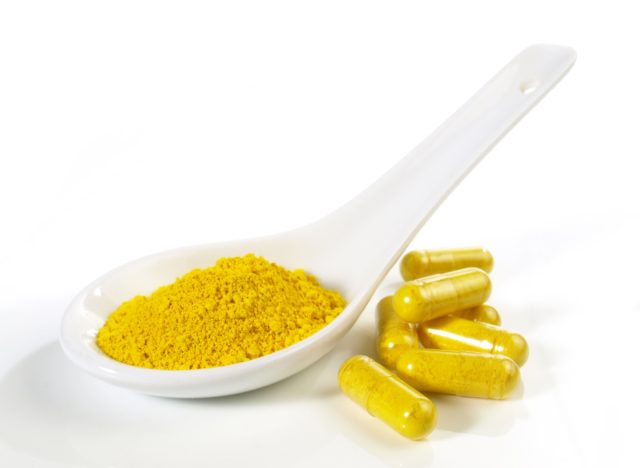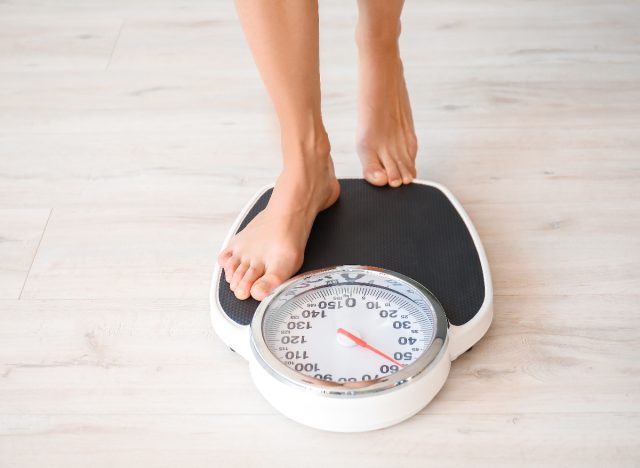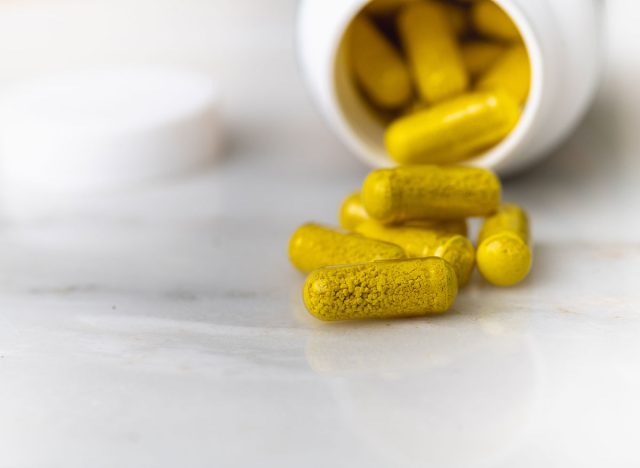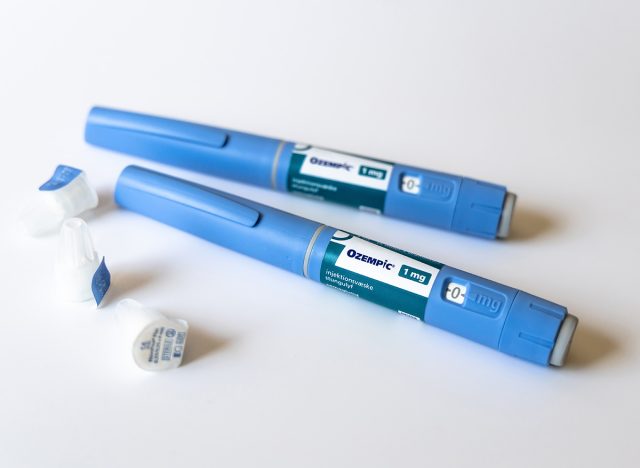The $15 Supplement Doctors Are Calling ‘Nature’s Ozempic’ for Menopause Weight

Weight gain during menopause is a common occurrence. As hormones change, estrogen levels drop and the metabolism slows down, weight gain can happen. As a result, losing the unwanted pounds can be more challenging, but many are turning to Berberine—a supplement derived from a number of plants, including barberry plants.
It’s been dubbed “Nature’s Ozempic” by social media users and people love it because it’s more natural than Ozempic and cheaper. You can find a bottle for $15 or less. By comparison, for a one month supply of Ozempic, it will cost $968.52 without insurance, according to Weight Watchers.
With so much hype surrounding, Berberine Eat This, Not That! spoke with Dr. Diala Alatassi, MD, CMO and Obesity Medicine physician at TeleSlim Clinic who explains what to know about the craze and if it really works.
As always, it’s important to consult a physician before taking a supplement.
What Studies Show About Berberine

More research is being conducted on Berberine, but it’s vital to keep in mind that most studies have been done on mice, not humans.
According to Dr. Alatassi, the current evidence for Berberine in promoting weight loss is based on preclinical studies.
“A meta-analysis of randomized controlled trials indicates that berberine supplementation is associated with a modest but statistically significant reduction in BMI compared to placebo,” she explains. “These studies, however, are small, short duration, and limited by other factors.”
How Berberine Causes Weight Loss

There’s still much to be learned about Berberine when it comes to weight loss and Dr. Alatassi says, “Berberine causes weight loss in several mechanisms that are still not fully understood. Some of the pathways can include modulation of the gut bacteria, which may influence better metabolism supporting weight reduction.”
She explains, “It can also activate AMP- activated protein kinase (AMPK); that leads to increased energy expenditure, and inhibition of lipogenesis (creating more fat tissue storage) in the fat tissue and liver. It can indirectly stimulate endogenous GLP-1 from intestinal L cells. VS GLP1 medications that directly stimulate the secretion of GLP1.”
How Taking Berberine Compares to GLP-1 in Terms of Weight Loss

For anyone looking to drop a significant amount of weight, Berberine might not be for you.
“The average weight loss with GLP1 Wegovy 10-15%, Zepbound (GLP1/GIP) 20-25%. compared to very modest weight loss about 2-5 lbs with Berberine,” says Dr. Alatassi.
The Benefits of Taking Berberine Instead of Ozempic

While there doesn’t appear to be a dramatic weight loss with Berberine, there are benefits to taking it.
“Compared to GLP1, Berberine is considered a natural herbal supplement, can be purchased over the counter without prescription, and is considerably cheap especially when compared to the GLP1 injections,” Dr. Alatassi points out.
Potential Side Effects

Another factor to consider are the potential side effects. While everyone reacts differently, you could experience unpleasant symptoms.
“Most side effects with berberine are gastrointestinal symptoms, including constipation, diarrhea, abdominal pain,” says Dr. Alatassi. “Less common side effects are bitter taste, headache, allergic reaction etc. they are generally mild-moderate and tend to occur early in treatment and resolve spontaneously usually.it is considered safe and well tolerated in small clinical studies. Serious adverse events are considered rare.”